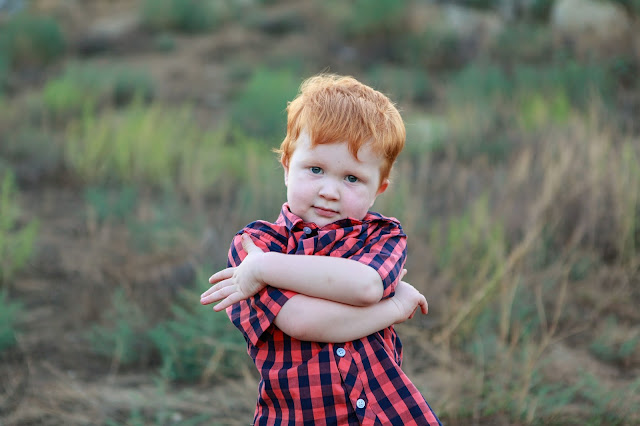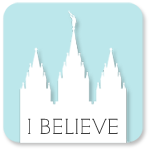My first child was born over 12 years ago. As she grew, I noticed things were a little different. She wasn't meeting her milestones. Having a child with challenges seemed impossible for me to fathom at just 22 years old.
Before I even faced the issues with my daughter, my second child was born with two strange marks on his stomach. Doctors diagnosed him with mastocytosis, a rare blood disorder. With the right help, I felt like I could take care of him. I was still worried about my daughter, though.
When my son was around 18 months old, I finally reached a breaking point with my daughter. I had to know what was going on. I didn't want to hear what I thought it might be, but I knew I needed help, desperately. Autism was the diagnosis (along with others over the coming years). I cried and cried. I worried about her future. I didn't have enough support to figure it all out.
When my daughter was 9 and my son was 6, we had another child. He was born with a birth defect called bilateral cleft palate. I couldn't believe I was given another child with a challenge. I couldn't believe how different each child's challenges were. I wondered if I could hold it all together.
At this point, I began to ask, "Why me? Why them?" Why was I given children that needed to see doctors regularly? That needed surgery? That needed specialists, IEPs, and therapists? Why did some parents have typical children and not me? Why were my children given these challenges and not other children? I felt justified in asking these questions, considering each of my children was born with a unique diagnosis.
But then I realized, soon after my second son's birth, actually right there in the hospital with him, that wallowing in the "whys" would get me nowhere. I simply don't have the answers. I won't have the answers, not in this life. And I remembered a quote I had heard, that when life brings challenges, instead of asking "why," we should ask, "What am I supposed to learn from this?"
Life is all about challenges--it's not supposed to be easy. Life is a test. Trials and hardships come to everyone, regardless of how rich or powerful or poor or smart or kind or mean they are. We have no control over these trials that come. Diseases, chronic illnesses, disabilities, handicaps, addictions, mental illnesses--they can happen to anyone at any time. Some last a lifetime, some don't. This is how we learn how strong we are, as parents, as individuals. This is how prove ourselves, how we show that we won't give up.
But even when you're trying hard to discover what needs to be learned, you stumble. And you need help again to gain your focus. What gets me through this learning process is HOPE. It's what I cling to when I feel like I'm drowning in my struggles. Where do I get this hope?
I gained a measure of hope just 5 days ago, while at my daughter's swim lesson. With a new time slot, we got to meet a new parent and child. This child happened to have autism, like my daughter. The father and I talked during the lesson. He understood my situation, and I understood his. Just knowing a real person who gets what I am going through as a parent does wonders for me. This connection bolstered my hope, and gave me newfound strength to go forward. Moments like this always happen when I need them, and I know it's not by chance.
What else gives me hope? Knowing that these earthly challenges are just that--earthly, temporary. If you believe in heaven, you have to believe that the struggles we go through, that afflict us in this life, that afflict our children, are not permanent. One day I will see my child with autism made whole, perfect, and complete. One day, I will be able to have a heart to heart conversation with her, and she will finally be able to share with me her deepest feelings. Autism may have limited her during her earthly life, but in the eternal scheme of things, autism will just be temporary. Until then, I will love her just the way she is now, and help others see that she is more than her diagnosis--it's only one part of her.
These diagnoses that are given to children, to adults, during this life--they are important. They bring a measure of understanding for others who might otherwise judge or question.
The diagnosis is often the first piece of information I share about my kids (when needed); after that, anything else shared about them just shows what someone with that diagnosis can accomplish. Society is learning more and more about disabilities every day because people are writing about it, openly. So openly that others might feel parents are exploiting or objectifying disabilities in general.
Many questions come to mind when I think about this: Why do I share my children's diagnoses? Do I want them to be defined by their diagnoses, or to be treated just like any other child? Why do some share their disabilities, and others not? Isn't there a reason why we meet with doctors behind closed doors? Why medical history is confidential? Why IEPs are written and signed in a closed office and sent home in sealed envelopes? Why do I, and others, feel the need to be open about disability and differences? What has changed? Are we damaging our kids by sharing a diagnosis?
Now of course I'm not going to share every private detail from my kids' medical history or IEPs or doctor evaluation reports. But if I'm to be honest, before I started talking openly about my children's challenges,
I felt like I was living a lie. There was a time when I would blog (mostly journal) the life of my family when we were all younger. I would write about the happy things we did as a family, and behind the scenes, I was going to countless doctors with my kids, meetings, advocating on very long phone calls, and crying myself to sleep. No one knew, besides my family, about my children's challenges. Even after my youngest was born with a cleft palate, I never mentioned it publicly. When he was in the hospital for his surgery, I posted a picture of him in his hospital gown and people became concerned. Those close to me commented that he was having palate repair surgery and I flipped out. I deleted the comment. I told the person privately that I didn't want his cleft palate talked about.
I felt bound, like I couldn't talk about what I was struggling with as a parent just because my kids had health issues. I didn't want to be viewed as the parent who wanted pity, or have others feel sorry for me. And I wanted to protect my kids, and make sure they were viewed for who they were, not a diagnosis. I thought people would see them differently if I defined or labeled them. But the diagnosis is not the person--a person is a person first. A child a child, first. The diagnosis second.
I soon realized that I couldn't live a lie anymore. This was my life, and I didn't want to feel like I couldn't ever talk about it. And I reached a point where I knew that from what I had been through with my kids, all the experiences I'd had to that point, were worth sharing. Just like that dad I met at the pool--that connection gave me hope. Keeping my life to myself was killing me inside. Where was my hope, my connection? Where could I find someone who would understand me? There weren't any support groups near me. I only had a few friends I could talk to, and family of course, but I still had to hide so much of myself and my kids.
Soon after my son's surgery, I heard about a blogger who did a special needs spotlight every Friday. I emailed her about my experience as a parent. She wanted to feature my story. It was the first time I had ever shared it. Parents commented on my honesty. They mentioned that they could relate. Finally, someone understood my life. I was free. Writing my story gave me the hope I was searching for.
I began this blog and wrote more openly about my kids. I've connected with so many parents like me. Even my own parents have noticed a change in me since doing this. I'm more confident in my abilities, mainly because I know I'm not alone.
My kids have not been damaged or exploited or objectified--they have been celebrated--not because of their diagnosis, but because of what they can do despite their diagnosis.
I think about how different I would have felt, 10 years ago, when I first began suspecting my daughter had autism, if parents were writing then. Ten years ago, people weren't talking about it like they do now. Autism was viewed as something to be feared, as a death sentence. It's no wonder I was in denial about it. People weren't writing much about disability in general. Look how far we've come.
I don't like that my children have given me challenges to overcome as a parent, but I can't change it, either. I can either become a better person through this journey, or a bitter person. I don't see them as a burden—I see
their challenges a burden,
for them. And as parent, my job is to help them through their challenges until they are able to do it on their own. I will be by their side, supporting them, sharing their successes, building them up, and allowing others to build them up so I am living my life as parent to the fullest extent possible. No more hiding.
Everyone has unique challenges. Every person's challenges and successes make up the person's story. And sharing this story can lift others, and bring the hope and connection others are seeking. Don't be afraid of your story just because it might include disabilities or diseases, or things you think others wouldn't understand. Disabilities, diseases, and illnesses are just one type of struggle that people face that can bring people together in strength and hope. There is someone out there who can benefit from what you have to say. We are here to learn from each other.






























